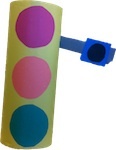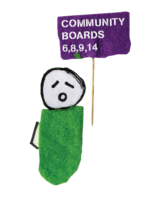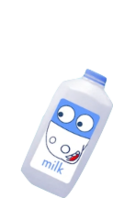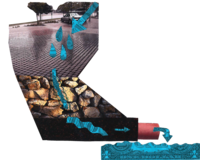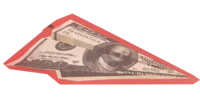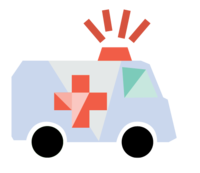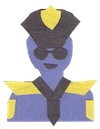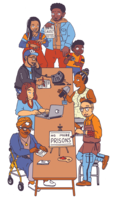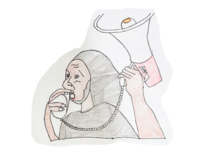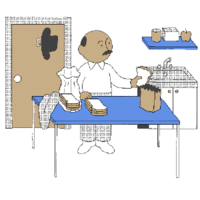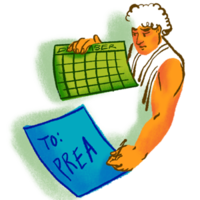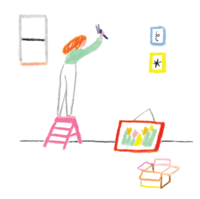‘2012 Curry Stone Design Prize’
Domus
November, 24, 2012
CUP provides practical information to groups who need it most: immigrants, public-housing residents, and at-risk youth, to name a few.
‘Public Access Design unites artists and advocates on urgent social issues’
Art Threat
November, 19, 2012
[CUP] has brought the principle of public-access television to the world of design with a project intended to provide impactful design to community advocates.
‘Guest Lesson | Thinking Critically About Food in a Season of Plenty’
New York Times Learning Network
November, 13, 2012
[Students] interviewed experts from fields ranging from real estate to food distribution to urban planning. They summarized their findings in a booklet about food justice…
‘Are You Ready? An Illustrated Guide to Preparing for Disaster’
GOOD
October, 29, 2012
[The booklet] is a tool for individuals and community organizations who’d like to start thinking about community preparedness, what that might look like, and why it matters.
‘Funky Fresh Means Access to Healthy Food in the Bronx’
WBAI
October, 19, 2012
The visuals were so breathtaking… the kids [who took part in the project] learned a lot of new skill sets.
‘New York Art Book Fair: Books of Note’
Domus
October, 5, 2012
[Power Trip] explores the infrastructure and apparatus that keeps the lights on, and in so doing boils down a very complex topic in clear terms… affording the people involved an opportunity to (figuratively or literally) peer down some manholes and look at the city.
‘Don’t Drink and Drill!’
WCNY
October, 1, 2012
A short segement on the subway posters CUP created with the advocacy group Damascus Citizens for Sustainability and designers Papercut. The posters explore the the controversial gas-drilling technique known as ‘fracking.’
‘Making Policy Public’
MAS Context
July, 1, 2012
A multi-page feature from MAS Context’s special issue on “Communication.”
‘Direct Democracy Comes to Harlem’
Bill Moyers
April, 16, 2012
Ordinary citizens young and old were given the unusual power to decide how millions of their city districts’ budgets were spent.
‘Bronx Bodegas for Beginners’
Curbed
March, 14, 2012
This documentary is a good primer on the bodega industry.
‘Policy for People poster-style’
Public Policy Lab
November, 10, 2011
The poster speaks to the audience for whom the information is most important — those who are under 18!
‘Where Does Your (Convenience Store) Food Come From?’
Gilt Taste
August, 31, 2011
These students take the opportunity to really explore how this little corner of the city works… and what results is one of the smartest, most nuanced, and most fun documents on the subject we’ve ever seen.
